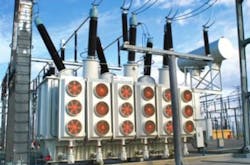Huge Transformer Investment in Virginial Will Support Surging AI and Compute Growth
Key Highlights
- Artificial intelligence and data center growth is expected to add ~125 GW of load in the United States.
- Hitachi to invest ~$1B in the U.S., with $457 million for a new Virginia transformer plant.
- The new facility is expected to add more than 800 jobs and ease supply chain bottlenecks.
- Domestic transformer capacity is a critical backbone for future energy and compute synergy.
As artificial intelligence (AI) workloads scale relentlessly, the hidden limit beneath them is often not compute but power infrastructure. For CIOs, CTOs, and tech leaders building next-generation compute environments, the grid and its physical delivery systems must evolve in lockstep. Hitachi Energy’s new investment in U.S. transformer manufacturing signals a strategic pivot: infrastructure catching up to AI’s appetite.
By localizing transformer capacity, Hitachi aims to reduce lead times, alleviate global supply constraints, and strengthen the resilience of energy-delivery systems feeding cloud and AI ecosystems.
As reported by Rod Walton in “Hitachi Energy: AI Race in America Inspires $457 million Transformer Manufacturing Investment” on EnergyTech:
“Hitachi Energy will expand its grid infrastructure in the U.S. by another $1 billion in a new investment in line with the Trump Administration’s goal to improve the power grid for coming data center and artificial intelligence technology growth. Nearly half of that $1 billion will be spent on building a new utility-scale power transformer manufacturing plant in Virginia, the state with the biggest recent growth in data center capacity.
Forecasts vary, but most predictions by Goldman Sachs, Deloitte and others indicate that the race for AI dominance and continued growth of cloud-based computing will add perhaps 125 GW of new load on the American grid. At the same time, earlier this year the American Society of Civil Engineers released its quadrennial infrastructure scorecard which graded U.S. energy infrastructure at a D+, estimating the nation was close to $1 trillion behind in necessary upgrade and capital investment. Producing large power transformers will contribute to upgrades in high-voltage transmission, expanded power generation capacity, industrial and AI data centers.”
Continue reading “Hitachi Energy: AI Race in America Inspires $457M Transformer Manufacturing Investment” by Rod Walton on EnergyTech.
Why It Matters to You
For TechEDGE readers building AI, data center, or industrial compute infrastructure, this is a real-world reminder: Compute growth means nothing without power scale. The back-end supply chain for transformers, substations, and high-voltage delivery will be the silent frontier in AI deployment. If you can’t provision power reliably, your compute ambitions stall.
Moreover, by localizing manufacturing, Hitachi is reducing geopolitical and logistics risk in critical infrastructure—a lesson that applies across verticals. You should view infrastructure investment not just as “hardware plumbing,” but as strategic capacity that supports your compute architecture, resilience, and deployment velocity.
Next Steps
- CTO/Infrastructure Lead: Model projected power demand for AI and data center buildouts over 5–10 years and overlay grid upgrade timelines.
- Power/Facilities Engineering: Engage with local utilities early, signal roadmap for transformer needs, and explore partnerships or co-investment.
- Operations/Site Planning: Factor transformer lead times and supply chain delays into your deployment timelines.
- Strategy/Finance: Build ROI and risk scenarios that include grid upgrade costs, transformer scarcity, and power resiliency margins.
- Government/Policy/Advocacy: Advocate for infrastructure incentives or grants to support local grid modernization tied to AI buildout.
 Quiz
Quiz
Stay ahead of the curve with weekly insights into emerging technologies, cybersecurity, and digital transformation. TechEDGE brings you expert perspectives, real-world applications, and the innovations driving tomorrow’s breakthroughs, so you’re always equipped to lead the next wave of change.

